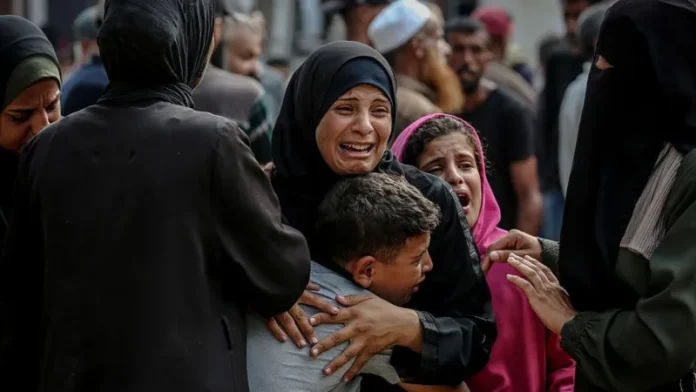The United Nations has confirmed famine in Gaza City and its surrounding areas, describing the crisis as a “failure of humanity” and a “man-made disaster.”
The declaration follows an assessment by the Integrated Food Security Phase Classification (IPC), which raised Gaza’s food insecurity status to Phase 5 — the most severe level, characterised by starvation and death. According to the IPC, more than half a million people in Gaza are facing “catastrophic” conditions.
Without urgent intervention, famine is projected to expand into Deir al-Balah and Khan Younis between mid-August and the end of September, leaving nearly a third of Gaza’s population — about 641,000 people — in Phase 5 famine conditions. The report also predicts severe malnutrition among 132,000 children under five by mid-2026.
UN Secretary-General Antonio Guterres said the declaration was not a surprise but rather a moral indictment. “Just when it seems there are no words left to describe the living hell in Gaza, a new one has been added: famine. This is a man-made disaster, a failure of humanity itself,” he said.
Israel has strongly rejected the findings, with Prime Minister Benjamin Netanyahu insisting: “Israel does not have a policy of starvation. Since the beginning of the war, Israel has enabled two million tons of aid to enter the Gaza Strip.”
The Israeli military body overseeing aid, COGAT, says 300 trucks are entering daily, but UN agencies say 600 are needed to avert widespread starvation. Aid groups argue that restrictions, security checks, and delays imposed by Israel are obstructing deliveries.
UN aid chief Tom Fletcher described the famine as “entirely preventable,” adding, “Food cannot get through because of systematic obstruction by Israel.” Phillipe Lazzarini, head of UNRWA, accused Israel of enforcing “starvation by design.”
Testimonies from Gaza paint a bleak picture. Reem Tawfiq Khader, a mother of five, said her family has not eaten protein in five months.
“My youngest child is four years old. He doesn’t know what fruit or vegetables taste like,” she said. Another mother, Rida Hijjeh, described how her daughter’s weight dropped dramatically due to lack of food, leaving her malnourished and ill.
The UN Human Rights Chief Volker Turk has also condemned the restrictions as unlawful under international law, while UK Foreign Secretary David Lammy labelled the famine “a moral outrage.”
Israel has experimented with airdrops and humanitarian corridors, but aid groups have dismissed these as unsafe and insufficient. Several civilians have been killed attempting to retrieve aid packages, while UN officials continue to stress that ground-based deliveries are the only effective method.
Since the start of Israel’s campaign in response to the October 7 Hamas attack, more than 62,000 people have been killed in Gaza, according to local health authorities. With 90% of homes damaged or destroyed and basic infrastructure in ruins, the famine adds yet another layer of devastation to a population already enduring extraordinary hardship.
As famine spreads, the UN warns that without immediate large-scale action, the toll in Gaza could escalate to unprecedented levels.

